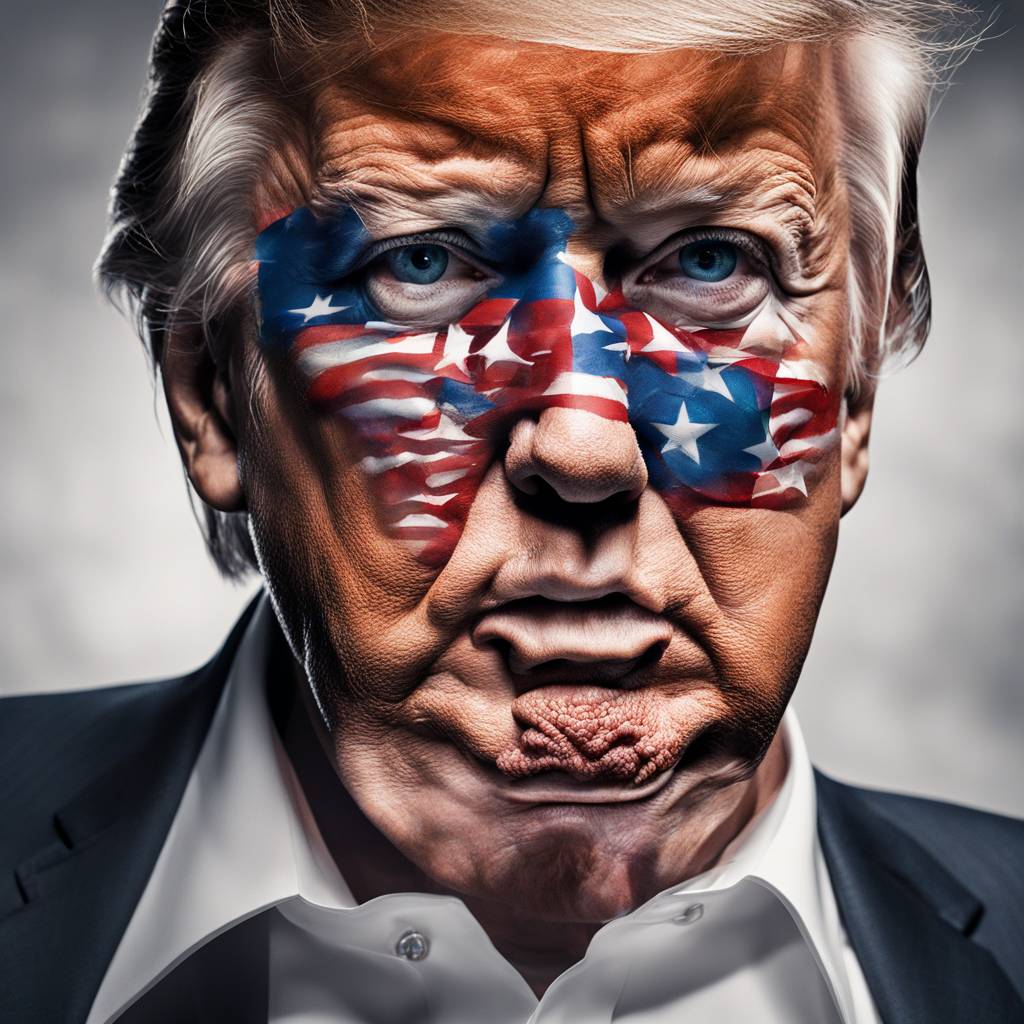The current political climate in the U.S. is being likened to apocalyptic scenarios, with Donald Trump stirring up fear and violence with his rhetoric. Trump has warned of potential blood baths in various industries and national security if he is not elected. He uses language that feeds into dystopian visions and threatens dire consequences if he is not in power. His supporters are energized by these fear-mongering tactics, and Trump’s speeches are compared to the language used by tyrants in history.
The comparison between Trump and Shakespeare’s character Macbeth is explored, with references to the blood imagery and themes of power grabs in the play. Trump’s behavior since the 2020 election loss is seen as a raw power grab, even though it ultimately failed. His continued use of inflammatory language and threats to democracy are reminiscent of the play’s themes of unchecked ambition and the downfall of a tyrant. The production of “Macbeth” starring Ralph Fiennes is seen as particularly relevant in today’s political climate.
Trump’s obsession with bloodlines and genetic superiority is discussed, with parallels drawn to Nazi ideologies and eugenics. His views on immigrants, race, and genetics have been consistent throughout his public life, and his belief in superior and inferior bloodlines can be traced back to his father, who instilled these beliefs in him. The use of racial hatred and dehumanization of immigrants in Trump’s speeches reflects a disturbing set of beliefs regarding genetics and bloodlines.
The complicity of Republican enablers in Trump’s rise to power is highlighted, showing how they have supported his authoritarian tendencies and embraced his divisive rhetoric. The idea of renaming an airport after Trump as a tribute, as well as the pushback from Democrats wanting to name a prison after him, shows the extreme polarization in American politics. The parallels between Trump’s campaign and Macbeth’s castle, with its imagery of blood and decay, further emphasize the destructive nature of Trump’s leadership and its impact on the country.
Overall, the content delves into the dangerous rhetoric and fear-mongering tactics employed by Donald Trump, drawing comparisons to Shakespearean tragedies and historical tyrants. The language used by Trump and his supporters reflects a troubling belief in genetic superiority and bloodlines, echoing darker chapters in history. The complicity of Republican enablers in supporting Trump’s authoritarian tendencies is a cause for concern, as it further entrenches division and polarization in American politics. The comparison to Macbeth serves as a cautionary tale of unchecked ambition and the consequences of unchecked power.


